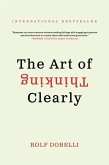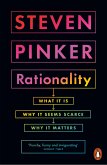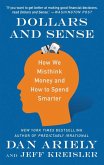A concise and engaging exploration of how we understand happiness.
What does it mean to feel happiness? As a state of mind, it s elusive. As a concept despite the plethora of pop psychology books on the subject it s poorly understood. In this volume in the MIT Press Essential Knowledge series, psychologist Tim Lomas offers a concise and engaging overview of our current understanding of happiness. Lomas explains that although the field of positive psychology, which focuses on happiness, emerged only in the last twenty-five years, interest in the meaning of happiness goes back several millennia. Drawing on a variety of disciplines, from philosophy and sociology to economics and anthropology, Lomas offers an expansive vision of what happiness means, exploring a significant range of experiential territory.
After considering such related concepts as wellbeing and flourishing, Lomas traces ideas of happiness from the ancient Buddhist notions of sukha and nirvana through Aristotle s distinction between hedonic and eudaemonic happiness to today s therapeutic and scientific approaches. He discusses current academic perspectives, looking at the breadth of happiness research across disciplines; examines the mechanics of happiness the physiological, psychological, phenomenological, and sociocultural processes that make up happiness; explores the factors that influence happiness, both individual and social; and discusses the cultivation of happiness.
What does it mean to feel happiness? As a state of mind, it s elusive. As a concept despite the plethora of pop psychology books on the subject it s poorly understood. In this volume in the MIT Press Essential Knowledge series, psychologist Tim Lomas offers a concise and engaging overview of our current understanding of happiness. Lomas explains that although the field of positive psychology, which focuses on happiness, emerged only in the last twenty-five years, interest in the meaning of happiness goes back several millennia. Drawing on a variety of disciplines, from philosophy and sociology to economics and anthropology, Lomas offers an expansive vision of what happiness means, exploring a significant range of experiential territory.
After considering such related concepts as wellbeing and flourishing, Lomas traces ideas of happiness from the ancient Buddhist notions of sukha and nirvana through Aristotle s distinction between hedonic and eudaemonic happiness to today s therapeutic and scientific approaches. He discusses current academic perspectives, looking at the breadth of happiness research across disciplines; examines the mechanics of happiness the physiological, psychological, phenomenological, and sociocultural processes that make up happiness; explores the factors that influence happiness, both individual and social; and discusses the cultivation of happiness.








